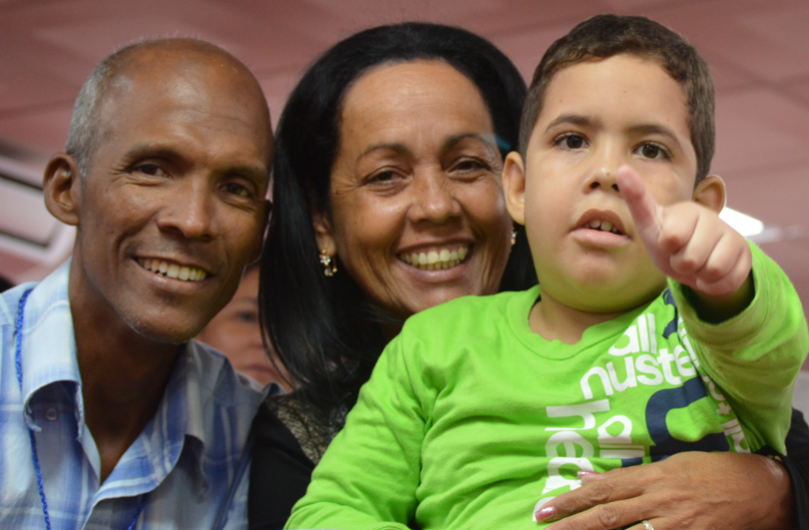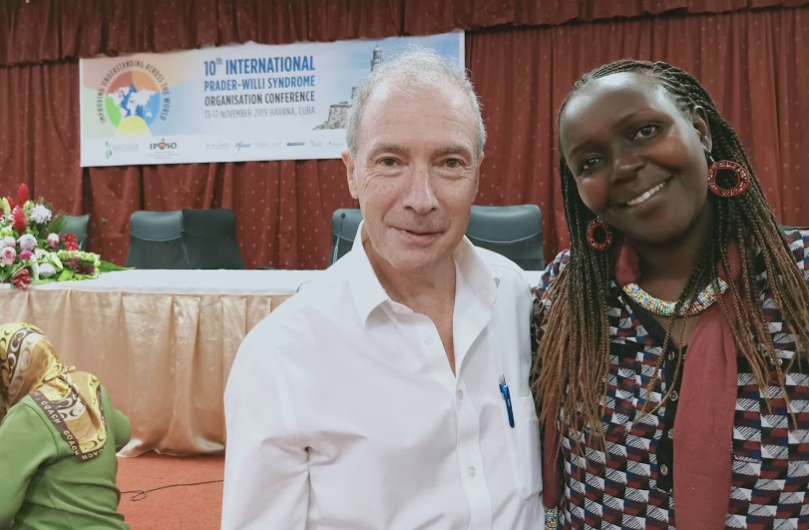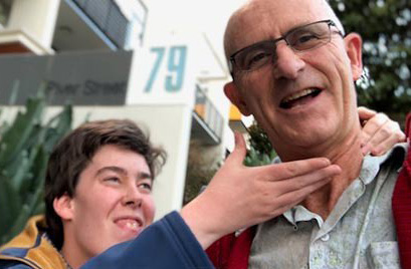Confabulation
What exactly is ‘confabulation’?
It is defined by dictionaries as: a memory disturbance, defined as the production of fabricated, distorted or misinterpreted memories about oneself or the world, without the conscious intention to deceive.
Confabulation is different from lying as the person is fabricating stories that he or she genuinely believes in, and believes that you, too, should also believe what they are saying. They are often coherent, consistent, and the stories are relatively ‘normal’. The information produced in these stories is generally false, or made up from incorrect memories, either of the person’s own, or from what they may have heard or read or seen. Confabulation can range from subtle alterations of a story, to quite bizarre fabrications.
Evidence of these stories can often be blatantly contradictory, but pointing this out to the story-teller can result in very difficult and problematic behaviours. The story-teller will take issue with your contradictions, no matter how clearly you present them and if an argument ensues, you will not win. The story-teller can become very upset, anxious, and often becomes the ‘victim’ because all of a sudden you ‘can’t be trusted; are not their friend; never believe them; are calling them a liar’ and so on.
Although it may be harmless story-telling, confabulation can lead to more challenging situations with the story-teller becoming so convinced they are telling the truth about something or someone, that they demand higher authority intervention, even at police level.
What is the best way to help the person overcome their tendency to ‘spin’ the truth?
Janice Forster (MD, Developmental Neuropsychiatrist of the Pittsburgh Partnership, and advisor to IPWSO) suggests the following strategies:
First, in order to define the problem, ask these questions:
- Is this pattern of behaviour typical of the person with PWS?
- Has the person been diagnosed with bipolar disorder or is s/he receiving any medications that might cause grandiosity or mood activation?
- Is the person high functioning?
- Does the person have a lot of freedom in his/her life?
- What is the genetic subtype?
- Are the parents the legal guardians, or does the person consent for him/herself?
A cognitive characteristic typical for PWS is that they see things only from their own point of view. They can take another person’s viewpoint, but not at the same time that they are getting their point across. At a later date they might admit that the story they told is not true or say they never told it. I have come to understand that when they are telling a story, they really do believe it to be true. That’s why they are so convincing and so unable to be persuaded. Another cognitive trait is their ability to take little pieces of data and create a whole picture, something like puzzle assembly. They can overhear a conversation, get tiny bits of it and make quite a convincing story. The story is most effective if there is an audience. No doubt there is a lot of attention directed toward the content of the story and the person who tells it. This is a perpetuating factor, because the story gets a lot of interest even though it is false.
Managing this behaviour is challenging. Here are several suggestions:
Reduce his/her degrees of freedom. S/he may have access to too many people and too much information. This enables him/her in not a good way. Computer time can be limited or supervised.
Take away the audience. This means that you have to alert every one that s/he comes in contact with that s/he is a storyteller and that veracity should be doubted. Then, try to redirect to a safe topic that everyone knows is true, like “Tell me about your sports memorabilia collection” or “Tell me about the first time that you went to a rugby game?” Or, if in a residential or school environment, teach staff an intervention “That’s an interesting story, but I’ll have to check with your mom.” or, “It must make you feel important to think that you’re related to a sports star.” It’s not helpful to ignore, and it’s not helpful to attempt to dissuade. Helping him or her to save face is important.
Turn his/her admiration into an asset. If he wants to be a sports star, or she wants to be a film star, then they need to live the life-style, including weight loss and exercise. (Special Olympics can be a wonderful way to provide an appropriate level of competition, together with appropriate exercise.)
Use social stories. Social stories are a helpful vehicle for teaching morality like why it’s a bad thing to lie. Most confabulators are creative people, so maybe they can write some with you.
Alert the police. Be proactive with the police. Tell them that story telling is part of your child’s repertoire. Give them your telephone number so they can call you if they become involved. If your son or daughter already has experienced the police, I would strongly advise you to get guardianship if you do not already have it. Bright as they are, they will not be able to advocate for themselves, although the court may find them competent.
Consider therapy. If s/he is high functioning, s/he may be dealing with feelings of inadequacy due to having PWS, so their stories are all about being someone else who doesn’t have the syndrome.
Adjust medications if they are contributing to the situation.
This article was written by IPWSO’s Famcare Board.
International Community
IPWSO was established so that PWS associations, families, clinicians and caregivers around the world could exchange information and support and have a united global voice under one umbrella.
Information for Medical Professionals
The latest medical and scientific research and information, plus guides into common medical issues affecting people with PWS.



